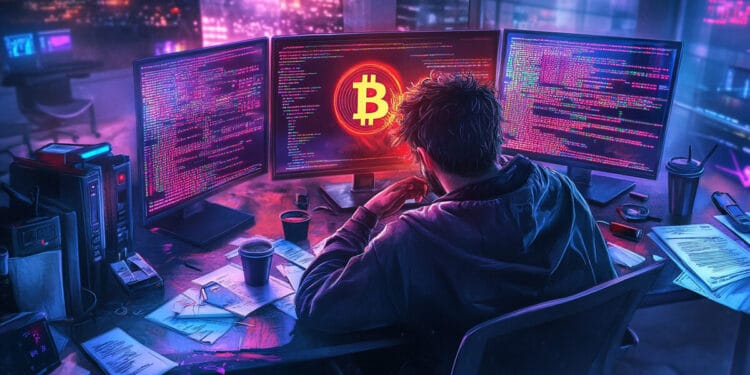Bitcoin Core developer Luke Dashjr has raised issues in regards to the finality of Bitcoin transactions, stating that the extensively accepted six-block affirmation rule now not holds.
In accordance with him, transaction finalization now takes over every week, casting doubt on Bitcoin’s resistance to censorship.
Finality refers back to the level the place reversing a transaction turns into virtually unattainable as a result of immense computational energy required. Historically, this threshold was reached as soon as six blocks had been added after the unique transaction.
Why Bitcoin transactions are taking longer to finalize
Dashjr argues that the normal commonplace now not applies as a result of growing centralization of Bitcoin mining swimming pools. In a Feb. 8 X put up, he defined that he tried to replace the six-block affirmation goal in Bitcoin Knots, a Bitcoin Core different.
Nevertheless, his calculations indicated that resulting from Antpool’s important share of the community hashrate, attaining 95% safety now requires over 800 blocks—equal to roughly 5.5 days.
Information from the HashRate Index exhibits that Antpool controls about 16.67% of Bitcoin’s whole hash energy, trailing Foundry USA at 33.12%. Different main swimming pools embody F2Pool (8.87%), MARA Pool (6.06%), and SecPool (5.19%).
Nevertheless, Dashjr disputes these figures, asserting that a number of swimming pools, resembling Braiins and probably ViaBTC, act as proxies for Antpool, making its affect far higher. He additionally famous that many miners unknowingly contribute to potential community reorganizations by working beneath centralized swimming pools.
Business issues
Business consultants have echoed these issues, warning that the growing dominance of some mining swimming pools exposes Bitcoin to potential censorship and even a 51% assault.
Bob Burnett, CEO of Barefoot Mining, stated that if a single entity controls a good portion of the community’s hash energy, it may manipulate the blockchain by reorganizing transactions.
He famous:
“At a minimal, [the threat] is existential to Bitcoin being censorship resistant and it additionally means immutability takes a really very long time to realize.”
Contemplating this, Burnett proposed that retail traders play a task in restoring decentralization.
He advised pressuring publicly traded mining corporations to unfold their hash energy throughout smaller swimming pools, making certain no single entity controls over 15% of Bitcoin’s community. If miners refuse, he believes traders ought to divest their shares and publicly name out non-compliant corporations to take care of Bitcoin’s decentralized nature.
In the meantime, not everybody agrees that this difficulty is as extreme as Dashjr claims. Daniel Roberts, the co-founder of Iris Vitality Ltd, downplayed these issues, suggesting that Bitcoin’s design permits it to self-regulate over time.
Roberts added:
“Bitcoin might not excellent, and we should always proceed to try to enhance it, however some of these points are usually both self-correcting or constructed into the design deliberately.”
















